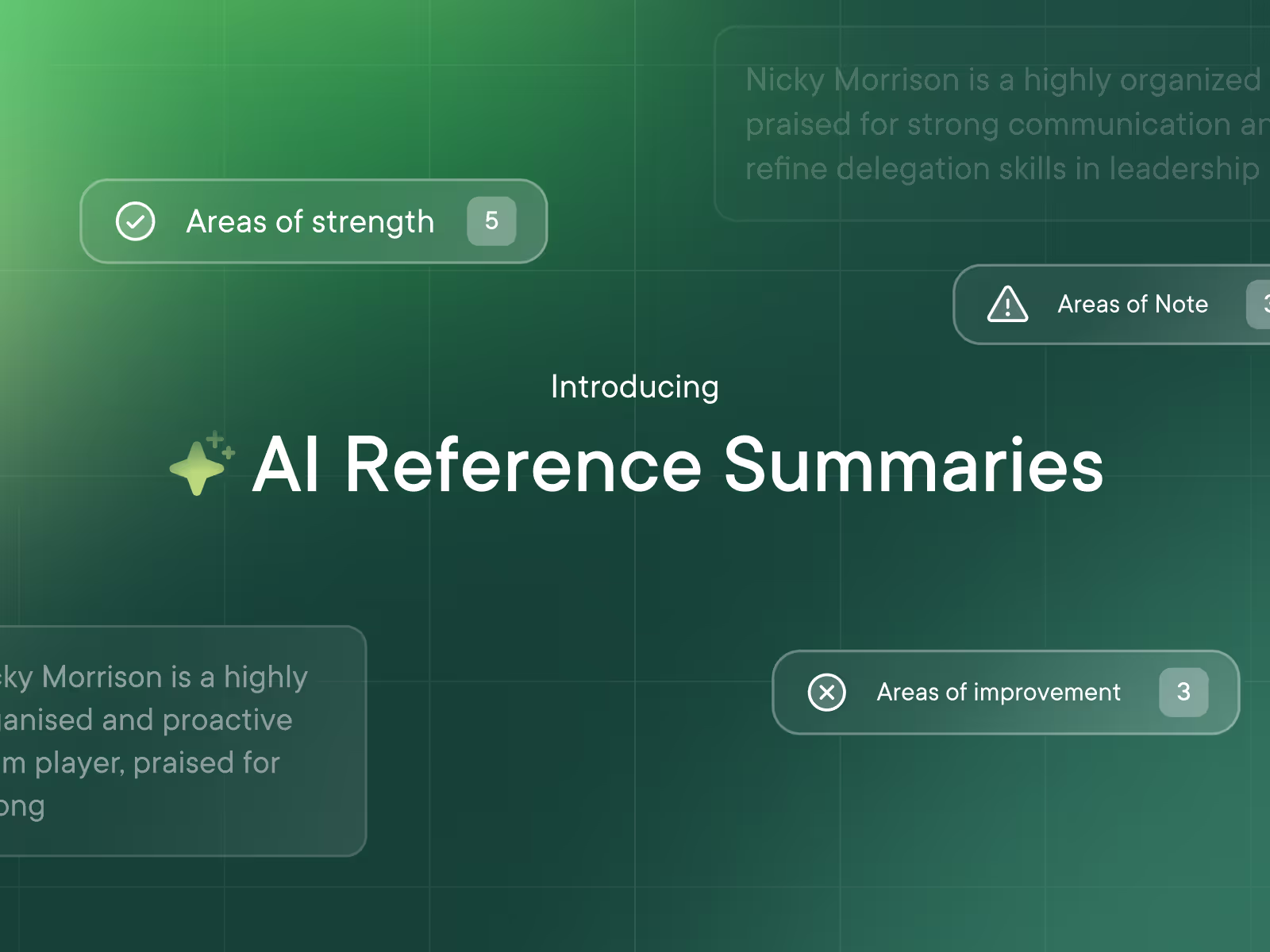


Give your people a voice with a tailored Xref Engage survey.
Increase retention and reduce turnover with quick employee feedback from an Xref Pulse Survey.
Recognition programs are designed to attract, motivate, and retain talent. They communicate what is important to the organisation and encourage high performance amongst employees through reinforcement of desired behaviours.
Recognition promotes a strong sense of leadership and support and significantly impacts employee productivity, satisfaction, and engagement.
Employee recognition also reduces turnover and absenteeism in the workplace and is often more cost-effective and flexible than cash awards.
Although some organisations are improving in this area, employee feedback indicates a need for greater recognition in the workplace.
In this blog, we explore what employee recognition means and how you can strengthen your recognition programs. Let’s begin by defining employee recognition and later explain four strategies to create meaningful employee programs.
Employee recognition is a vital practice that acknowledges and appreciates employees' contributions, helping them understand that their efforts are valued.
By providing feedback and recognition, companies can show employees what success looks like and foster a sense of accomplishment.
Recognition can be given for various reasons, such as exceptional performance, notable achievements, length of service, or demonstrating desired behaviours.
As HR leaders search for ways to improve the employee experience, understanding the role of employee recognition in the workforce is essential. Employee recognition is not just a nice-to-have; it is a strategic necessity for any organisation aiming to thrive in a dynamic marketplace.
Research conducted by Xref Engage, which examined over 3,500 employees evenly distributed across various industries, found that recognition consistently emerged as one of the most influential factors in enhancing staff engagement.
Acknowledging and appreciating employees' efforts significantly boosts their morale. When employees feel valued due to recognition from their seniors and understand the measurable impact of their work, they are more likely to be satisfied and productive. Happy employees are, on average, 12 per cent more productive than their less-happy counterparts.
Expressing gratitude to employees fosters an atmosphere of trust. When employees see that their efforts are recognised by higher-ups, they feel a stronger connection to leadership.
Notably, nearly 90 per cent of employees who received recognition or thanks from their boss in the past month reported higher levels of trust in that boss. In contrast, only 48 per cent of employees who did not receive recognition felt the same level of trust.
Many companies struggle with effectively recognising their teams and individual employees.
Although no single program fits all organisations, there are four essential elements of meaningful employee recognition that all companies can implement.
Recognition programs designed to reinforce an organisation’s mission, strategy and values encourage employees to act in line with what is important to the organisation.
When recognition programs do not align with the organisation’s goals and values, employees may receive mixed messages and be rewarded for acting in a way that does not facilitate organisational objectives.
Create recognition criteria based on organisational values, and present awards to employees who best exemplify these values to emphasise their importance and demonstrate appreciation for those who display them.
For example, At Xref, we celebrate our employees through a quarterly recognition program that aligns with our core values.
Recognition should be meaningful to and valued by all individuals who receive it. This suggests that recognition should be tailored to each employee (or groups of employees) based on their personal preferences and circumstances.
Some employees are interested in praise and feedback, some want greater support, involvement, or learning and development opportunities, while others prefer flexible working hours or greater autonomy. This means that the more choices employees have around the recognition options available, the better. And the best way to ensure that employees value the recognition is to simply ask them.
There is a risk of losing the power and value of recognition if it is viewed as unfair or inconsistent.
For recognition to be perceived as fair in its process and outcomes, all employees must have equal opportunity to earn recognition, with equivalent recognition to all employees who meet the criteria.
Make the recognition process transparent by clearly communicating to all employees the criteria for receiving recognition and showing that it is consistent across teams and departments. Consider also involving employees in developing these criteria.
Every recognition program requires support and commitment from key stakeholders in order to be successful and sustainable.
It is important to obtain buy-in from management so that resources can be provided to develop and implement the recognition program, and to build a culture of recognition.
You may need to educate management on the importance and impact of recognition. For example, research shows that a simple ‘thanks’ leads to greater pro-social behaviour among employees and a willingness to put in extra effort for the organisation.
Involve employees in the planning stages and give them a degree of ownership over how recognition is to be delivered.
An employee recognition program is crucial for recruiting and retaining talent. More importantly, it fosters employee engagement, which in turn boosts productivity.
You can reap the benefits of an employee recognition program by aligning them with organisational goals, tailoring it to individuals, and applying it fairly and consistently to gain key stakeholder support.
